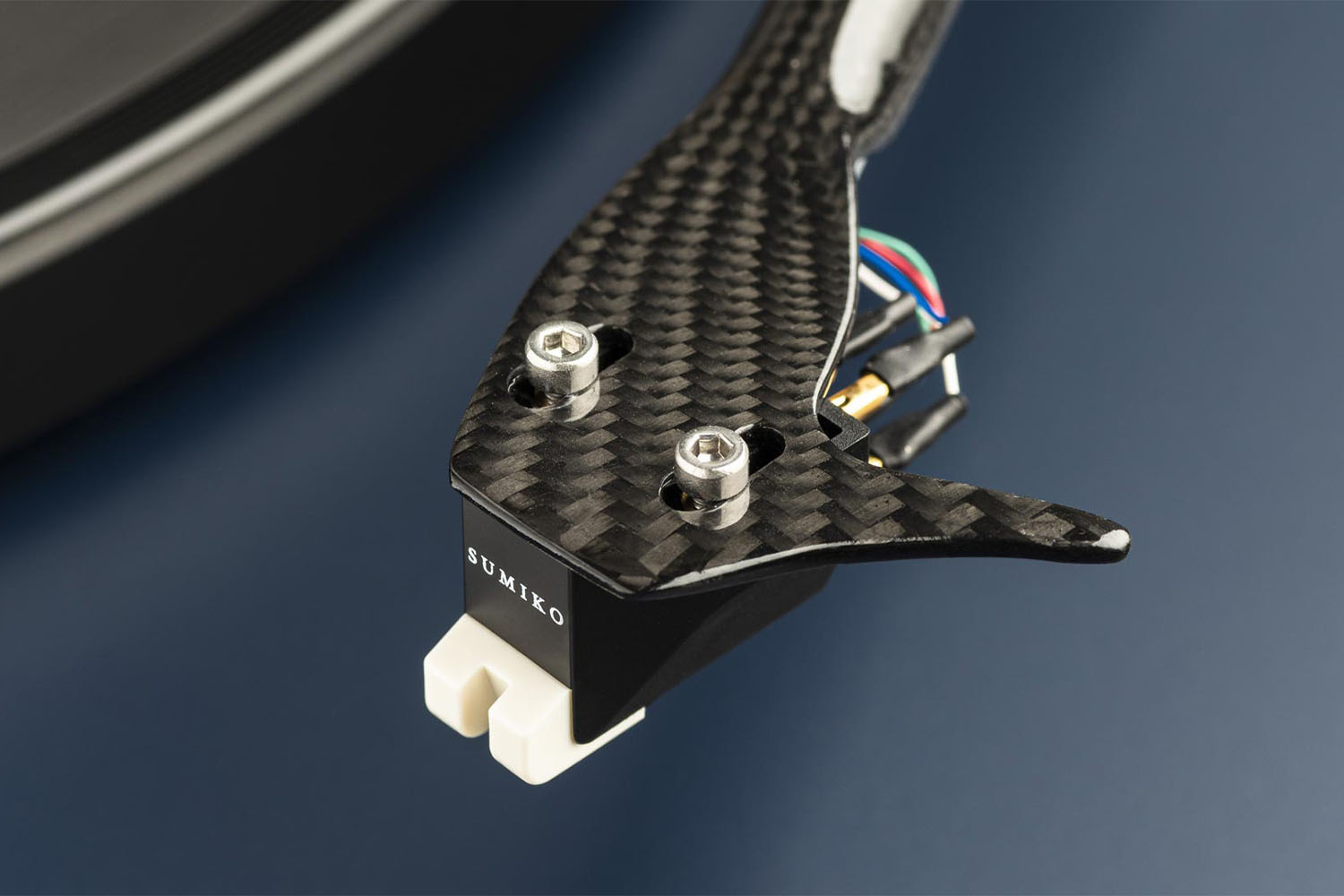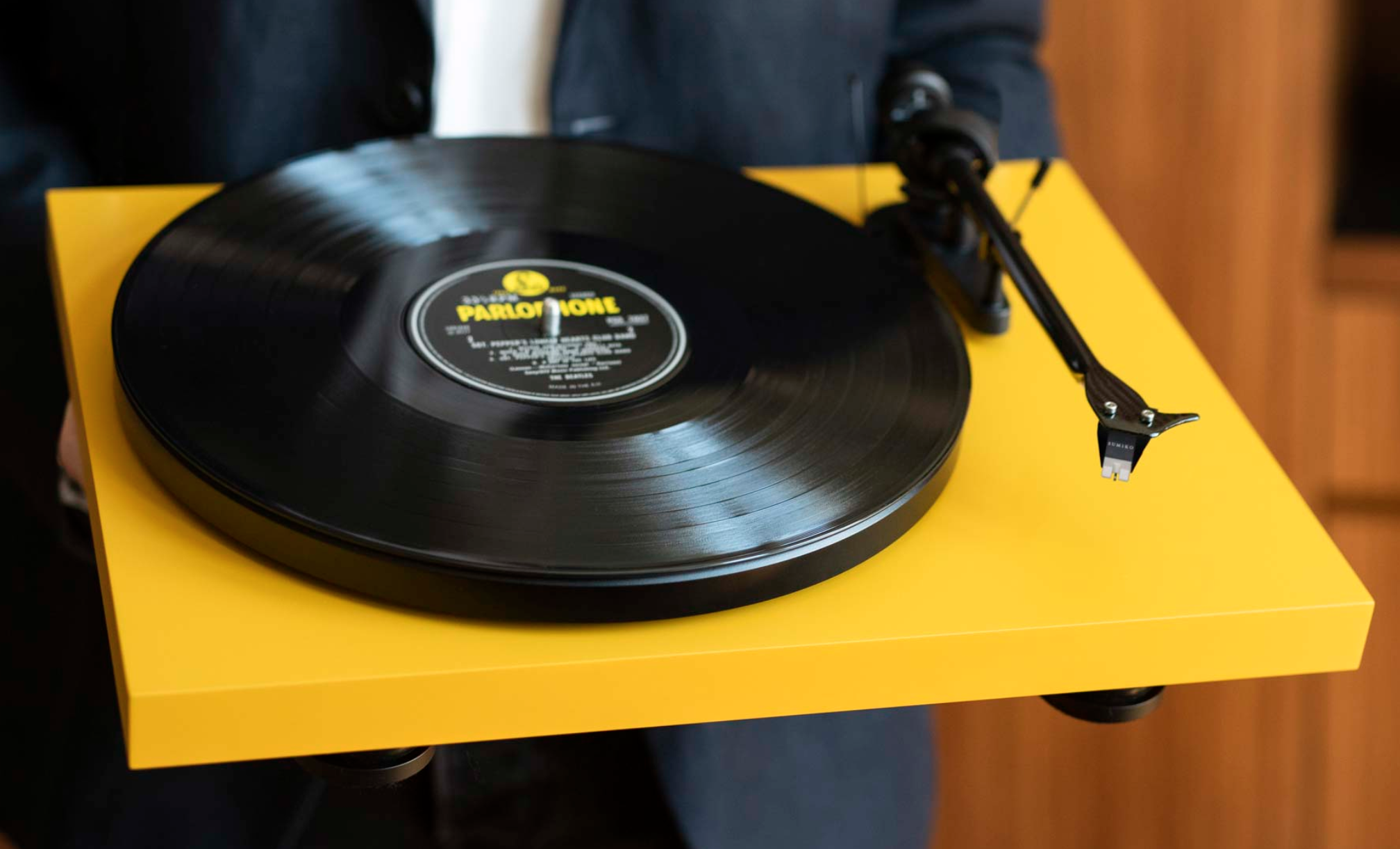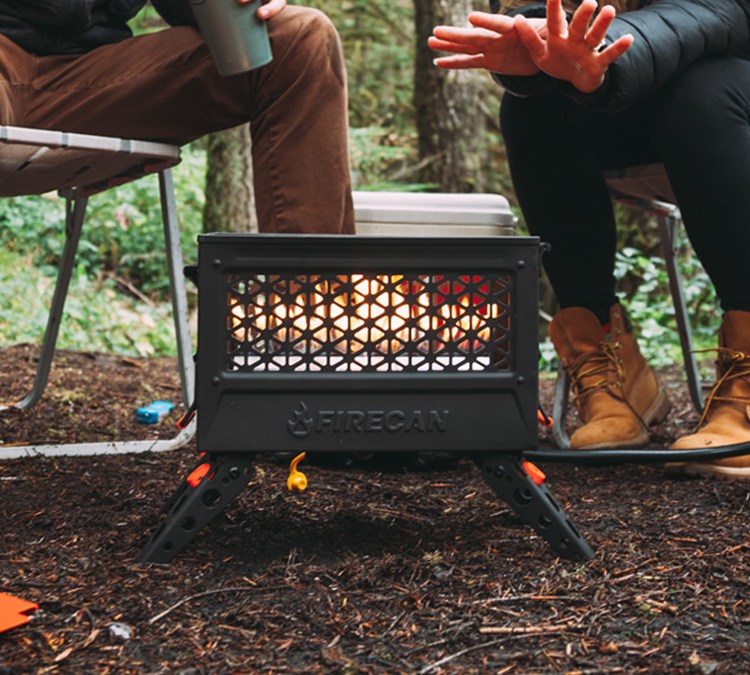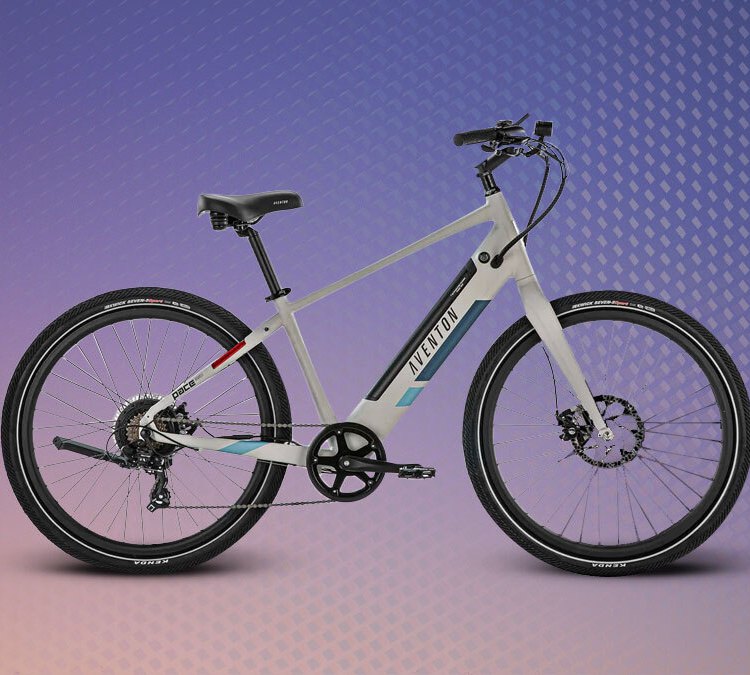Nota bene: If you buy through the links in this article, we may earn a small share of the profits.
What is it?
It’s the Pro-Ject Audio Debut Carbon Evolution, an update to the Debut Carbon DC before it and the original Debut Carbon before that. It’s a belt-driven manual turntable that’s long been favored by audiophiles and aesthetes alike, thanks to its minimalist design and multitude of color options, combined with its outstanding feature set and performance attributes.
Why does it matter?
If you know someone who’s gotten really into vinyl in the past decade or so, there’s a very good chance he or she has some version of the Debut Carbon. Pro-Ject is the largest manufacturer of turntables in the world, and this is their best-selling model by a long shot. Traditionally priced at $399, the Debut Carbon has been a very attractive option for someone who’s getting into the hobby but wants to bypass the more entry-level options like the (still perfectly respectable) Audio Technica LP60 or those (not at all respectable) faux-retro Crosley monstrosities.
Because Pro-Ject makes such a huge number of turntables, many costing well into the thousands, they’re operating on a scale that few other manufacturers are, and are therefore able to incorporate some of the tech featured in those higher-end options into more affordable turntables like the Debut Carbon.
For this reason, I always describe it as the most affordable turntable you won’t automatically want to replace with something better the moment you become even remotely serious about the hobby. Paired with decent electronics and good speakers — outstanding examples of which are available more widely and at more compelling prices than ever before — the Debut Carbon will blow the cheaper options out of the water in terms of sound quality and get far closer to that of the higher-end options than anything else in this price range.

What’s new?
- The Debut Carbon Evolution features newly designed feet that are wider than on previous models and coated in a TPE material that helps reduce resonance. They’re also adjustable for easier leveling. I realize this does not sound like a particularly sexy upgrade, but it is.
- Now for a more obviously sexy upgrade: the Evolution is available in a staggering nine different color options, ranging from the standard high-gloss black, red and white, to more subdued satin finishes including brand new dark blue and green options, plus a very nice natural-looking walnut.
- For the first time on a Debut Carbon model, the Evolution allows you to switch easily between 33 and 45 RPM without removing the platter and adjusting the belt. It’s now controlled by flipping the power switch to the left (for 33) or the right (for 45).
- The Evolution features an improved motor suspension system that uses TPE washers to cut down on unwanted vibrations. Again, this is not something that seems super exciting, but all of these little details are what add up to make certain turntables better than others.
- The heavy steel platter included with past versions of the Debut Carbon was quite resonant. The Evolution features the exact same platter, but it’s now equipped with a TPE dampening ring around the perimeter, which — are you noticing a pattern here? — is meant to cut down on unwanted resonance.
- The Evolution comes with a brand new Sumiko Rainier cartridge, which is a $150 value on its own. The Rainier replaces the ubiquitous Ortofon 2M Red that was included on the Debut Carbon DC.

What do we like about it?
- Set-up is a breeze. Belt-drive turntables can be fussy, what with all the counter-weights and anti-skate devices and all that. The Evo is refreshingly straightforward and, most importantly, comes with very clear instructions. I’m kind of of a moron when it comes to this stuff, and I was listening to records within a half-hour of my test unit arriving on my doorstep.
- The new color options look great. I realize it may seem silly to focus on something that has no bearing whatsoever on the turntable’s performance, but it would be even sillier to pretend looks don’t matter. The very act of choosing vinyl over digital is in itself an aesthetic choice of sorts, so it’s a given that we’re conscious of how these things look in our living rooms. That Pro-Ject has managed to expand upon the accepted design language in the turntable market — a design language it very much helped establish, mind you — in a such a tasteful way with these new satin finishes, particularly the blue and green options, is no small feat.
- The same old awesome tonearm. One of Pro-Ject’s calling cards is the 8.6″ one-piece carbon fiber tonearm that has adorned previous versions, and it remains unchanged here. If it ain’t broke…
- The Sumiko cartridge ia a winner. I’ve spent hundreds of hours listening on an Ortofon 2M Red, the cartridge that was included on the Debut Carbon DC. To my ears, the Sumiko Rainier included on the Evolution seems to offer greater detail and a slightly more even handling of bass and treble, with no inner-groove distortion to speak of.
- Upgradability as far as the eye can see. The Debut Carbon Evolution is very much a turntable you can grow with if you happen to be a tinkerer. The tonearm can handle pretty much any cartridge on the market, so there’s virtually no limit to how much you can experiment in that area. Or, if you want to stick with the included Sumiko cartridge but want to squeeze a bit more performance out of it, it’s made in such a way that you can replace just the stylus itself (the needle) with more premium options from the Sumiko line. If resonance control becomes your pet obsession, you could choose to replace the included felt slipmat with Pro-Ject’s “Cork It” mat ($25), or go a step further and replace the steel platter with the brand’s “Acryl-It” platter ($129), which comes standard on Pro-Ject turntables in the $1,000+ range and looks really, really good.
And what don’t we like?
Honestly, at this price point, there’s not a single thing this turntable should do better than it does. You may have noted that the Evolution is priced at $499, up from $399 for the previous version. There are many reasons for this, but we think the upgrades more than justify the extra cost.
Should you buy it?
Probably. But here are two examples of people who might be better served by something else:
- Those looking for an all-in-one option, meaning something with a built-in preamp and bluetooth capabilities and all that junk. This is not that. This is a fairly old-school turntable that requires external amplification of some sort, a set of speakers, and some wires — the way nature intended it, we say.
- Those looking for a really high-end experience. I listen to and own a ton of records, and I go to considerable lengths to make sure all my audio equipment is of decent quality and is kept in good working condition. I care about sound probably more than most average people, but I also have neither the budget nor the ear to fully appreciate the really, really high-end shit. If you’re able to go out and drop thousands on a turntable, plus all the other stuff you need to go along with it, and you think you can tell the difference, by all means look elsewhere.
If, on the other hand, you are looking for an incredible value in a turntable that will far outperform less expensive options and last you damn near a lifetime you’re not going to find a better option.
Nota bene: If you buy through the links in this article, InsideHook may earn a small share of the profits.
We've put in the work researching, reviewing and rounding up all the shirts, jackets, shoes and accessories you'll need this season, whether it's for yourself of for gifting purposes. Sign up here for weekly style inspo direct to your inbox.


















